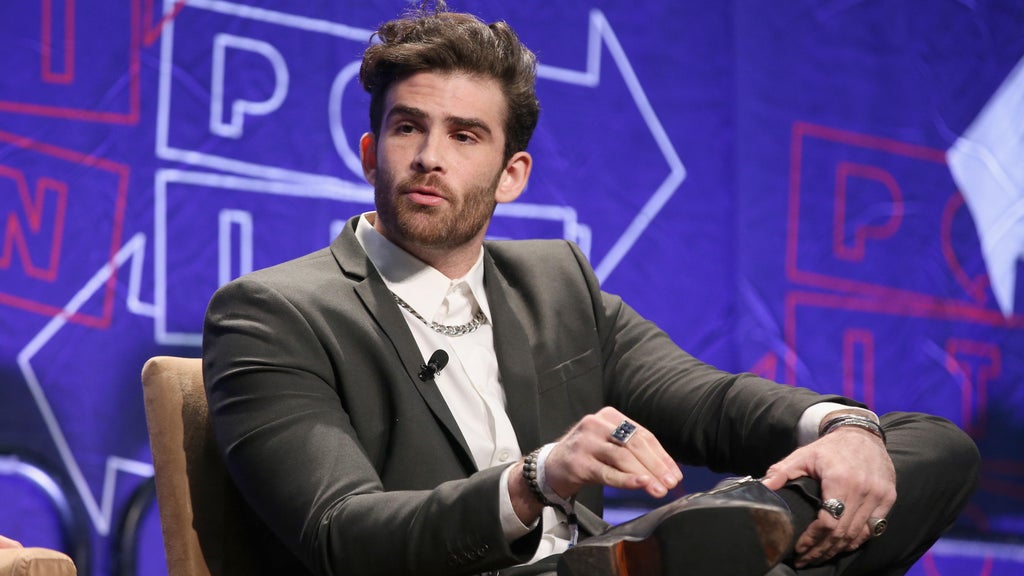Trump’s Appeals Rush Puts Supreme Court on a Delicate Path
The Supreme Court’s
unique session for oral presentations
On Thursday, the justices demonstrated the delicate equilibrium they must maintain during the second Trump presidency, particularly when faced with criticism from President Trump and his supporters in Congress who object to judicial decisions blocking his efforts to transform governmental structures.
From the beginning of his second term, federal courts have acted primarily as a significant obstacle to President Donald Trump’s desired policies. The administration has tallied over two dozen comprehensive restraining orders issued by local courts across approximately 100 legal challenges regarding executive measures.
These cases, such as thearguments made on Thursday regarding the potential termination of birthright citizenship across the nation, are rapidly moving towards the Supreme Court. Legal analysts have stated that this situation could place significant stress on the constitutional framework.
Charles Geyh, who teaches law at Indiana University and has served as legal advisor to both the House Judiciary Committee and the Administrative Office of the U.S. Courts, noted that this series of urgent petitions aligns with President’s broad aim to maximize his authority, placing the Supreme Court Justices in direct conflict with their subordinate judicial bodies.
“They are dealing with a president that is taking unprecedented steps to centralize his power, and it is putting the court in an impossible situation, where they are concerned with legitimacy generally, but also they are concerned about the legitimacy of their orders,” Geyh said.
The Trump administration has filed more than a dozen emergency applications at the Supreme Court to overrule temporary lower court orders prohibiting the
firing
of National Labor Relations Board members, stopping a prohibition on
transgender service members
in the military, and an order restarting foreign aid payments.
Several of those are still pending, adding even more of a crunch to the conclusion of the term when decisions in regularly scheduled cases are released by the end of June.
The justices have so far ruled in Trump’s favor in most of those emergency cases, with a few notable exceptions:
continuing
$2 billion in foreign aid payments the administration attempted to cancel; and
ordering
The administration aimed to “help” the return of Kilmar Abrego Garcia, a migrant residing in Maryland, whom they acknowledged was wrongly deported to a prison in El Salvador despite a judicial directive.
Trump himself has chafed at the courts’ rulings restricting his administration’s deportation push, which served as a major focus of his reelection campaign.
“Our Court System is not letting me do the job I was Elected to do. Activist judges must let the Trump Administration deport murderers, and other criminals who have come into our Country illegally, WITHOUT DELAY!!!” Trump posted on his social media site Truth Social last week.
Aziz Huq, who teaches law at the University of Chicago Law School, pointed out various potential hazards for the justices when dealing with urgent matters, including possibly appearing to support the Trump administration or seeming to “restrain themselves” so as not to clash with another governmental branch.
“I don’t think anyone knows how it will all play out and I’m a little suspicious when people say they do know,” Huq said.
Geyh said that the way the court handles these cases, and the Trump administration’s reactions to them, could precipitate a constitutional crisis. Geyh pointed out that the U.S. Marshal Service, which answers to Trump, enforces judicial orders, and members of the administration like Vice President JD Vance have raised the possibility of defying court orders.
“The ultimate worry that has been with them for 200 years is now coming to pass,” Geyh said.
Congress and lower courts
Many of the emergency applications to the Supreme Court in recent months have come with some political baggage. Rulings from lower court judges in those cases and others have sparked calls from Trump and his close allies to impeach judges who rule against the administration.
Trump’s House allies have introduced at least four sets of articles of
impeachment
against judges in cases against Trump.
Speaker Mike Johnson, R-La., said earlier this month that impeachments “are never off the table if they’re merited” but that it was unlikely the Senate would have the votes without a “brazen” crime.
He indicated a proposal from Representative Darrell Issa, R-Calif., as a possible method to tackle injunctions. The legislation
passed
The house earlier this year.
Individually, Johnson stated that the House had the option to reduce financial support for courts that ruled against the administration.
During a House subcommittee on appropriations for the Judiciary hearing held Wednesday, Robert J. Conrad—a previous federal judge and head of the Administrative Office of the U.S. Courts—condemned assaults on the judicial system as well as attempts to remove judges through impeachment proceedings.
Chief Justice John G. Roberts Jr. has spoken out multiple times about attacks on the judiciary in recent months, though he has never mentioned Trump or Republicans by name.
During an appearance at Georgetown Law on Monday, Roberts said the rule of law is “endangered” and warned against criticism of the justices.
The fundamental idea is that the rule of law prevails,” Roberts stated. “Both theoretically and practically speaking, we should occasionally pause and consider just how uncommon this concept has been historically and remains globally today.
Congressional Democrats have largely praised the courts’ actions so far. House Judiciary ranking member Rep. Jamie Raskin, D-Md., said that lower courts have done well with the “deluge” of litigation surrounding the Trump administration.
“And the Supreme Court has basically been standing up for due process, which is the linchpin of the whole Constitution,” Raskin said.
Off ramps
Huq and others indicated that even if the justices decide to limit the application of nationwide injunctions during the arguments heard on Thursday regarding birthright citizenship, this might not decrease the volume of emergency cases reaching the Supreme Court.
Giancarlo Canaparo, a senior legal fellow at the Heritage Foundation, said that removing nationwide injunctions from lower court judges would remove some of the pressure for the justices to intervene, but it would be unlikely to reduce the number of cases that make it before them.
“The stakes would be lower but the litigation would proceed with as much speed,” Canaparo said.
Huq pointed out that there are other types of suits, such as those brought over spending freezes or those brought by multiple states, that could still bring high-pressure litigation to the justices.
It’s also a consequence of the court’s decisions in recent years that critics said aggrandized the court’s role in American politics, Huq said.
“The court has elicited a situation where that is likely to happen by setting itself up as the decider of all questions of public importance,” Huq said.
The post
Trump’s quick appeals place Supreme Court on a delicate course
appeared first on
Roll Call
.




